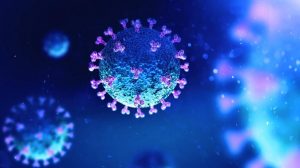Our bodies need balanced nutrition to be fit and to function properly. The need for balanced nutrition increases when we are recovering from illness or after surgery. Nutrition and recovery after surgery are closely related so both require extra attention.
What is Balanced Nutrition
Balanced nutrition is daily food composition that contains the type and amount of nutrients as needed by our bodies with regard to the principles of food diversity, physical activity, hygiene, and ideal body weight. To prevent malnourishment, people need to achieve balanced nutrition from an early age. If a person is malnourished, they will be more susceptible to disease, which will affect their productivity and life in general.
The Indonesian government regulates balanced nutrition through the Minister of Health Regulation Number 41 of 2014 concerning Guidelines for Balanced Nutrition. This regulation mentions four main pillars of balanced nutrition principles, namely:
- Exercise and practice an active lifestyle
- Eat a variety of foods
- Practice a clean and healthy lifestyle
- Maintain ideal body weight
The same regulation describes the 10 guidelines to achieve balanced nutrition:
- Eat a variety of staple foods
- Limit consumption of salty, sweet, and fatty foods
- Have sufficient physical activity and maintain an ideal body weight
- Eat side dishes with high protein
- Wash hands with soap and running water
- Make breakfast a daily habit
- Drink enough and safe water
- Eat more fruits and vegetables
- Make reading labels on food packaging a habit
- Be grateful and enjoy a variety of foods
In addition to meeting the body’s needs to keep diseases away and accelerate the growth and development process, balanced nutrition is needed to accelerate the post-surgery recovery period.
Post-Surgery Recovery
After a surgery, we need to put our focus on the nutrition and recovery. Depending on the type of surgery, the recovery will take place in the hospital or continue at home. Recovery time is also varied within a few days or longer. Nutritional adequacy will affect the length of recovery.
In the hospital, patients get a well-planned meal that has balanced nutrition. So basically, the patients and their families do not need to worry about nutritional adequacy during recovery in the hospital. As recovery continues at home, nutrition is something that needs to be concerned about for the good of the patients.
Besides a balanced nutrition diet, post-surgery recovery depends on many factors, including:
- Age
- Health condition before surgery
- Disease severity
- Rehabilitation success
- Rest period
Hospital medical personnel may recommend types of food that you should take and avoid to speed up recovery. It is important to adhere to these recommendations so your recovery process is not disrupted, thus you can return to normal activities as quickly as possible.
Post-Surgery Recovery and the Role of Nutrition
Although balanced nutrition is always important at any time, it plays a much bigger role in the post-surgery recovery period. Post-surgery nutrition program is vital to strengthen the body for an effective recovery. Patients must be aware of their daily food consumption to ensure their nutritional needs are met and recovery process comes off as expected.
To expedite the healing, our bodies generally require additional calories, protein, and vitamins A and C. If you have certain health problems, you should seek advice from a doctor or nutritionist so that the daily diet is matching with your condition. Preparation of a nutritionally balanced diet is crucial because nutritional deficiency after surgery will hinder the recovery process and reduce the chances of optimal recovery.
The benefits of post-surgery balanced nutrition include:
- Helps replace lost blood
- Helps heal surgical wound
- Provides raw materials for the immune system to protect the body from infection
- Increases energy level
- Helps improve the condition of skin, nerves, blood vessels, muscles, and bones
How to Achieve Balanced Nutrition
Eating a well-balanced diet can help keep your body in prime shape. To get a balanced nutrition, make sure you eat a variety of foods in the right portions. The following are some recommendations:
- Include vegetables in the diet
- Eat fruit every day
- Combine rice with a variety of other staple foods
- Look for healthy protein sources such as nuts and fish
- Reduce foods that contain saturated fat, salt, and sugar
- Drink lots of water, 6-8 glasses per day
- Do a regular exercise
The Role of Nutritionist in Recovery Process
Nutritional adequacy and post-surgery recovery may require the role of nutritionists. Nutritional therapy can be one of the recovery programs for patients who have just undergone surgery. The nutritionist is responsible for developing a therapy program according to the patient’s needs. Besides at the hospital, nutritional therapy can be carried out at home after returning from treatment.
An effective and personalized program based on the patient’s health condition and nutritional needs is essential for recovery. With nutritional therapy and recovery being closely monitored, the patient will have a greater chance to return to normal life as before surgery.



